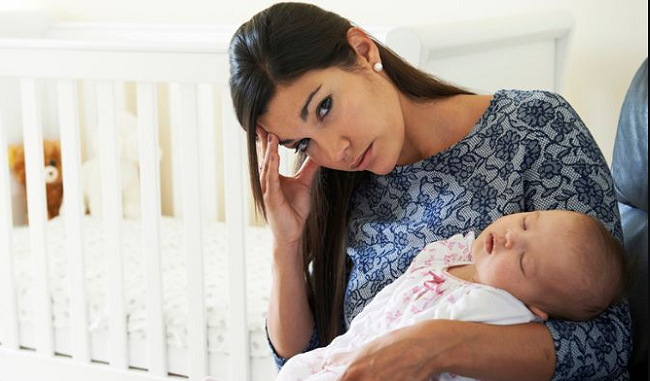
Oftentimes, women are forced to answer this question when they travel with their new babies to visit a faraway relative, go to the market, or even go to church. Older women correct them, pointing out that the newborns are still very tiny and delicate.
In some cultures, women stay at home with their new baby for a month or more. Some are also allowed to bring new babies out only in the morning, when it is not too hot.

In Nigeria, it is common practice for women to take new babies out, particularly after their naming ceremony, to mingle with people. Some go to their in-laws places, some to market places, and some even travel long distances with these newborns.
But Dr Kehinde Fasina, a consultant paediatrician at the paediatric pulmonology unit of the University College Hospital (UCH), Ibadan, said in a reaction that it is a practice that is not safe because the immune system of newborn babies is immature.
According to Dr Fasina, “At this stage, these babies are not fully immunised against common childhood diseases. Often, mothers don’t pay heed to our words; you only see them rush these newborns to the hospital, some 3 weeks after birth, with breathing difficulties, a high body temperature, and all sorts of rashes on the body.
“By the time you ask questions from these mothers, you will find out that the basic hygiene procedures we counselled them on were not observed; there was unnecessary contact with people, more so people that they are not sure of their health status.
“Hand washing or hand sanitising is something that we don’t practice in our environment. When people say, Let me help you carry your child, they easily give their children to these people. Meanwhile, people don’t wash hands even though they touch virtually anything, and they carry these babies without observing the basic hygienic procedures.”
Dr Fasina said cases of tuberculosis infection in babies occur when babies that have not had BCG, an immunisation against TB, are taken to an overcrowded place with many people seated and some also coughing.
“You don’t know the underlying cause of the cough. It may be TB; it may be pneumonia. It may just be a viral infection—an upper respiratory infection. For a newborn, the immune status is not yet optimal; as such, the baby can easily come down with any of these infections,” she added.
According to the Nigerian Federal Ministry of Health definition, a child is considered fully vaccinated if he or she has received a BCG (Bacilli Calmette Guerin) vaccination against tuberculosis; three doses of DPT (Diphtheria, Pertusis, and Tetanus) to prevent diphtheria, pertussis (whooping cough), and tetanus; at least three doses of the polio vaccine; and one dose of the measles vaccine.
All these vaccinations should be received during the first year of life, over the course of five visits, including the doses delivered at birth. According to this schedule, children aged 12–23 months would have completed their immunisations and be fully immunised.
To keep track of the delivery of these immunisations, Nigeria also provides parents or guardians with a health card on which each dose is recorded.
Vaccine-preventable diseases (VPDs) constitute major causes of morbidity and mortality in Africa. In Nigeria, over one million children die annually from preventable diseases, making the country one of the least successful of African countries in achieving improvements in child survival during the past four decades.
The Government of Nigeria, in collaboration with WHO, with funding from GAVI, the Bill and Melinda Gates Foundation (BMGF), and other partners, has been implementing free routine immunisation programmes across public health facilities in the country.
At Primary Care Centre facilities, the immunisation clinic operates Mondays through Fridays and administers all recommended antigens for all children under two years.
However, Dr Fasina declared that new babies should be left at home until after three months they are born, and they shouldn’t be kept in an environment that is crowded, poorly ventilated, or unhygienic.
In fact, babies born premature or who have a lengthy neonatal intensive care unit stay should hold off from public appearances for far more than three months until they’re growing and developing their immune systems.
“By that time, the child should have had the minimum immunisation that the child is expected to have had. By then, it is a bit safe for the child to be taken out,” she declared.
She decried the hygienic practices of many mothers and handlers of babies, adding that babies should only be handled after washing their hands with soap and clean water.
“I have been somewhere before. I saw the woman sitting down; she was counting money, and then a woman was carrying a child who was crying repeatedly and was difficult to console. She asked that she carry the crying child after robbing her hands on her wrapper. Naira notes, in circulation all around Nigeria, carry different germs of them.”
She also dissuaded mothers from patronising just any creches because some are fertile grounds for the spread of infections due to poor ventilation and myths that children kept in a well-ventilated room will catch infections like colds and chest problems.
There’s nothing quite like getting outside with the new little one. After all, there’s so much to see and explore! But there are certain times when venturing out is not advisable, particularly when there is severe weather on a hot day, the baby is sick, or the baby has an underlying condition that compromises their immune system.
YOU SHOULD NOT MISS THESE HEADLINES FROM NIGERIAN TRIBUNE
FULL LIST: 45 visa-free countries Nigerian passport can travel in 2024
Nigeria sits behind Ghana, Guinea, Kenya, Lesotho, Morocco, Benin Republic and Namibia which are at…
How my brother and I became professor same day in same varsity —UNILORIN don
Recently, two brothers –Ahmed Oloduowo Ameen and Mubarak Oloduowo Ameen– were promoted to…
‘I expected N2,000 as my share from sale of human head we got at Saki cemetery’
Thirty-two-year-old Alli and Abdullahi, aged 35, who were the two suspects arrested by…
Why Port Harcourt refinery is yet to start production—Soneye, NNPCL Chief Comm Officer
Mr Femi Soneye is the Chief Corporate Communications Officer (CCCO) of the…
Fear women, fair women and Minister Ojo
Betta Edu, Sadiya Umar-Farouq and Halima Shehu are the reigning women in our…
What you should know about players in Nigerian 2024 AFCON team
The Nigerian football team have appeared in the finals of the Africa Cup of Nations on twenty different occasions. Nigeria has…








